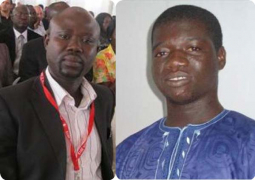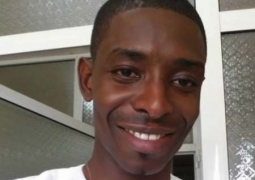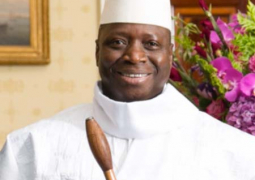When the Arab spring broke out in Tunisia in 2011, all the autocratic regimes in North Africa and the Middle East were on tenterhooks. For a region that has seen its fair share of ruthless dictators, the Arab Spring, as the protest that gripped the Arab world was called, citizens were emboldened by their newfound freedom ready to tackle leaders they feared before head-on.
Successful civic citizen democracy in Tunisia saw the forceful ouster of President Zine al-Abaden Ben Ali, who ruled that country for 23 years racking up soviet-style electoral victories in three presidential polls with 90 per cent.The wind later blew to the red sea and engulfed Egypt, the land of the Pharaoh.
Honi Mubarak, who ruled Egypt for almost 30 years with an iron clad, was also booted out of office. Tahrrir square, or freedom square, served as the mixing zone where all Egyptian be it the poor, downtrodden, deprived and dispossessed gathered to make their voice heard. The sheer enormous amout of tear gas, rubber bullets and sometimes real bullets were not able to dampen their feverish sprit. Twenty three days later, President Mubarak, threw in the towel.When the News of his resignation was announced to protesters occupying Tahrrir Square, they celebrated till dawn. The mood of that day, when Egyptians were united in their ouster of Mubarak, was a stark contrast to the deep schism in that country today.
Mubarak packed up with his wife and two sons Gamal and Ala for the posh sharm el Sheik hotel. This hotel whenever mentioned reminds me of the late President of Zambia, Levy Muwanawasa. In the peak of the 2008 Zimbabwe election dispute between President Robert Mugabe and Morgan Tsvangirai, Maunawasa, who was the chairman of Southern Africa Development Committee (SADC), pushed for the election dispute in Harare to be top of the African Union Summit in Sharm el Sheikh, Egypt.It was during this crucial meeting that he collapsed and was rushed to the popular Val de Grace military hospital in France. The following day he was reported dead.The same hospital is where President Omar Bongo of Gabon and the erstwhile Guinea Bissau President Malang Bekai Sanhai will die later in their presidency. But back to the Arab spring.
I can still remember vividly words of the BBC World Affairs correspondent, John Simpson, after the resignation of President Mubarak: “If I were Gadafhi, I will not feel comfortable about what happened in Egypt today”.The following day in Libya an unruly crowd went on the rampage in the second Libyan city of Benghazi demanding for reforms at first. Instead of extending some olive branch to the protesters, Brother leader Gadafhi, Kings of all Kings and Imams of all Imams as he self-proclaimed, used heavy weapons to snuff out any lingering hopes of a democratic Libya that the protesters were yearning for.
It took the intervention of western countries to weaken his regime offensive on the protesters.The bashing of NATO bombs on his secret locations in bunkers were enough for Libyans to do the finishing job. The story of his capture and killing was unbelievable to his loyalist. The 42 years regime of Gadafhi came to an end.
Enter Syria
Jordan, Saudi Arabia, Bahrain and Syria were all affected with disaffected citizens, young and old, taking to the streets demanding change. But with Jordan, Saudi Arabia and Bahrain being countries that enjoys the backing of United States, regimes in those countries were protected. But lots of concessions were made to address the concerns of their people.In Yemen it took the shooting of the President, Ali Abdulla Saleh, for him to step down. He signed his resignation on his hospital bed. Eh, power and the trappings that comes with it. Goodness me.
In Syria, President Bashir al Assad was fully prepared knowing that the heat is going to be on him.He doesn’t need anyone to remind him that the people of Syria are going to turn against him. “If you ruled your people with an iron fist with little democratic rights, you are boiling a pent-up anger in them. If and when the anger is unleashed the result is going to be catastrophic on you the ruler”, says the sage.
Tried as they might, the protesters were not able to bring down the regime in Damascus yet. If anything, Assad is projecting an image of confidence whenever he appeared on TV granting interviews to foreign journalist. He is always seemingly unfazed despite the bloodbath going on in his country and the pressure exerted on him by the international community.
Tough nut to crack
President Assad is proving to be a tough nut to crack. During the early days of the civil war rebels were making significant gains capturing key strategic towns from Derra, Hama, Dera Azour and Homs were all in the controls of rebels. But President Putin’s Russia, sensing that their last remaining ally in the Middle East is slowing going down heels, moved fast and armed President Assad with heavy weapons. The table turned in favor of Assad and his Alawitte regime.
Never mind what the international community will say, Putin will tell his Military Generals. When they are accused of supporting a murderous regime, the Kremlin would always defend its position saying it is honoring old contracts with the regime. But someone may counter this argument by asking: why delivering those weapons when you signed the contracts some decades ago?In order words, why now?
Another country that Syrian is sheltering under is Iran. For the Ayatollah in Iran, Khomeini, the survival of the regime in Iran will test how far Iran can project its dominance in the Middle East. The Saudis, not to be outdone, are also countering this by arming the rebel coalition with arms and money.All this is fueling the conflict making Syria a hellish place right on planet earth with a catastrophic humanitarian crisis which is eye-watery scary.
Hezbollah is also supporting the regime is Damascus sending fighters there with a proven track record of repelling an enemy and engaging them in desert warfare. Even the heavy bombardment of Israel failed to annihilate the group. By sending his fighter is Syria, Hassan Nasrallah, the leader of Hezbollah, has a point to prove.
All these factors are helping Basar al Assad stay in power.But the question that should be asked is: for how long can he shelter under the umbrella of Russia, Iran and Hezbollah?
Difficult peace talks
The Rebel coalition that President Assad is negotiating with in Geneva is fractured. The leader Ahmed Jarba is not enjoying the backing of many members of the group. He was appointed with a wafer-thin majority to lead the group in the talks. Add on to this, some elements of opposition groups in Syria are not involved in the talks. The radical al Nusra Front and the Islamic State of Iraq and Levant (ISIL) are all conspicuously absent in the talks. And these groups are in control of key towns in Syria.
Another thing that is going to make the talks more difficult is that both sides are poised to discredit each other. This is epitomized by a charged speech given by the head of the Assad delegation and Foreign Minister, Muallem. He set the tone for bitter exchange of words with the rebels when he called them “terrorists” and “traitors”.
This prompted the usually calm UN Secretary General to cut him short in the middle of his speech in the name of harmonized talks. But the foreign minister would not pay heed asserting his right to give his 30 minutes address like any other. Even when the barrage of insults on the opposition was going beyond the pale, Sergei Lavrov, the foreign Minister of Russia, key backers of the Syrian government, was seen signaling his time to Muallem.
The third day saw a breakthrough on the issue of opening humanitarian corridors to civilians trapped in Homs. Issues like releasing prisoners and the future of President Assad - key demands of the opposition will be very thorny and toxic.What is even making the prospect for peace more difficult is that both sides are meeting in the Palais de Nations in Monteux but are not taking to each other but through the mediator Lakhdar Brahimi and eye contact between them is minimal, to say the least.
Lakhdar Brahimi is a debonair and sophisticated diploma with a glittering record of delivering result in the toughest of situations. He gave a unity government to the people of Afghanistan with his loya jorga, which brought different strands of Afgans in one government.
But come to think of it, his predecessor as the chair of the UN and Arab League envoy, Kofi Anna, was frustrated by the little commitment both sides were showing and quit. But for Brahimi provocative statements like the one Faisal Maqdad, the deputy Foreign Minister of Syria made, would not make him quit. Faisal said: “we are not here to give the keys of Damascus to traitors”.
You deserve a Nobel Peace Prize Brahimi.
Author: Amadou Camara, an intern at the American corner and final year political science student at the University of the Gambia




